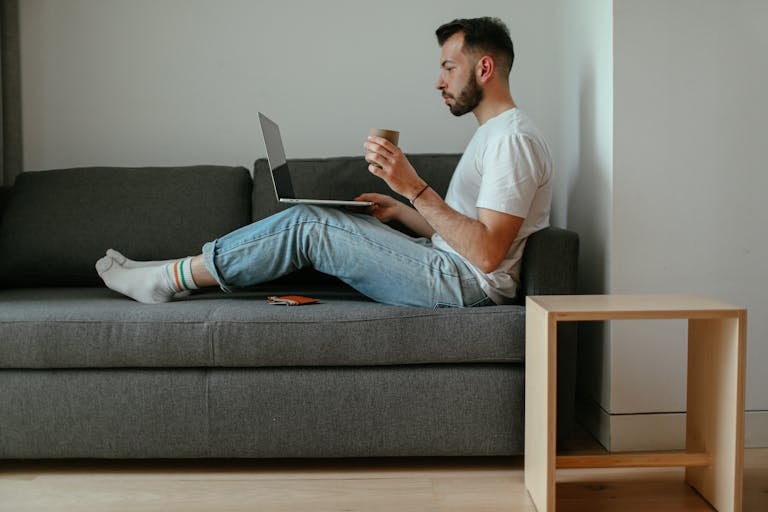In a world where screen time is the new normal, constant digital connection is draining our mental energy, focus, and even relationships. A digital detox isn’t just trendy — it’s a necessary reset for your brain and body. Whether for an hour, a day, or a weekend, stepping away from screens can dramatically improve your clarity, productivity, and peace of mind.
Here’s why and how to try a digital detox — and what to expect after doing one.

Why We All Need a Digital Detox
You check your phone before bed. Scroll during meals. Wake up and open social media. Sound familiar?
Studies show the average person spends 7+ hours daily on screens — often unconsciously. The result?
- Mental fatigue
- Low productivity
- Decreased creativity
- Sleep disruption
- Relationship strain
A detox helps you reset the dopamine loop and become more mindful with your tech.
Proven Benefits of a Digital Detox
- Better Focus
When you’re not distracted by pings and endless tabs, your mind sharpens. You’ll notice you finish tasks faster and with better quality. - Improved Sleep
Blue light from screens disrupts melatonin production. Less screen time = better, deeper rest. - Reduced Stress
Unplugging gives your brain breathing room. No constant alerts = less anxiety. - Stronger Real-World Connections
With fewer digital distractions, you’ll be more present with friends, family, and nature.
Signs You Need a Detox
- You feel “phantom vibrations” (thinking your phone buzzed when it didn’t)
- You open apps without realizing it
- You can’t get through a meal without checking your screen
- You feel anxious or unproductive after long online sessions
If any of these feel true — it’s time for a digital reset.
How to Do a Simple Digital Detox
Option 1: The 1-Hour Rule
Start small. Turn off all screens for one hour per day — during meals, walks, or before bed.
Option 2: The Weekend Cleanse
Go 24–48 hours without non-essential screen time. Let people know in advance if you’re going offline.
Option 3: The Ongoing Ritual
Set weekly tech-free windows:
- No phone before 8 AM
- No social media on Sundays
- No screens 1 hour before sleep
Tips to Make It Work
- Tell your circle: Let people know you’re unplugging so they don’t expect immediate replies.
- Replace, don’t remove: Substitute screen time with reading, journaling, walking, or hobbies.
- Use tools: Apps like Freedom, Offtime, and Forest help block distractions and track progress.
- Physically separate: Keep your phone in another room when unwinding or working.
What Happens After?
Expect to feel a bit weird at first — boredom, restlessness, even withdrawal. That’s your brain recalibrating. Within hours or days, you’ll notice:
- Sharper thoughts
- Better mood
- Heightened creativity
- More control over your time
The best part? You return to your devices with new awareness — using them intentionally instead of compulsively.
Q: How often should I do a digital detox?
A: Ideally, try short daily breaks and one longer detox weekly or monthly.
Q: What if I need my phone for work?
A: You can detox from non-essential apps like social media or streaming while keeping your work tools.
Q: Will a digital detox make me more productive?
A: Yes. Studies show reduced screen time can increase focus, reduce stress, and help you complete tasks faster.
Try a 24-hour digital detox this weekend. Unplug, recharge, and feel the difference. Your mind — and your future — will thank you.

I’m EKBAL HOSSAIN MONDAL, the creator of SmartSolveTips.com — a blog dedicated to helping people improve productivity, avoid digital burnout, and live better online. With years of hands-on experience in self-development and digital wellness, I write practical tips and tools to help you stay focused and thrive in a fast-paced digital world.






